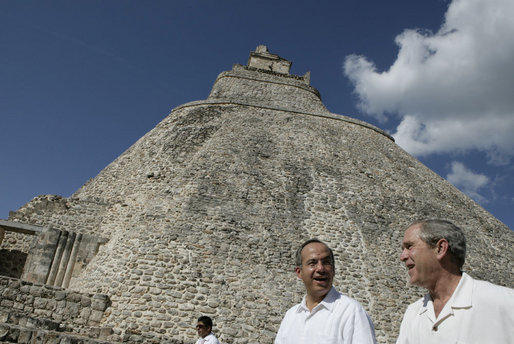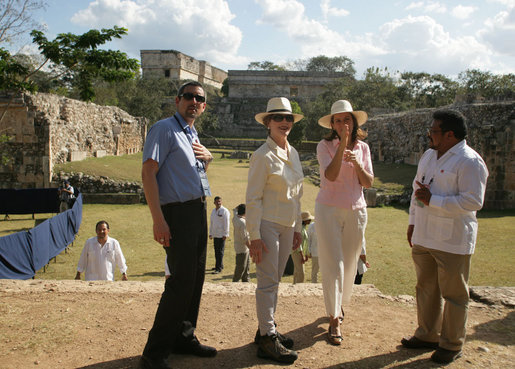Latin America
Related: About this forumMexico quietly marks 10 years of drug war
Mexico quietly marks 10 years of drug war
By Yemeli ORTEGA (AFP) 2 hours ago.
Ten years after Mexican troops were unleashed against drug cartels, the country will mark the anniversary without fanfare on Sunday, with murders rising again and the military eager to return to barracks.
President Enrique Pena Nieto, who inherited the drug war when he took office in December 2012, has promised his countrymen and women a "Mexico in peace."
His government has created a new federal police force and imprisoned or killed several drug kingpins, but Pena Nieto has kept troops on the ground despite allegations of abuses and criticism from human rights groups.
The administration has no events planned to commemorate the controversial deployment that was launched by his predecessor, Felipe Calderon, on December 11, 2006.
Ten days after taking office, Calderon deployed some 5,000 troops to his western home state of Michoacan -- the start of a militarized campaign against drug trafficking.
Calderon's six-year term was marked by a surge in murders, rising from 10,253 in 2007 to a peak of 22,852 in 2011.
More:
http://www.digitaljournal.com/news/world/mexico-quietly-marks-10-years-of-drug-war/article/481396#ixzz4SPZnYITj
LBN:
http://www.democraticunderground.com/10141636496
[center]
Throwing in a little sight-seeing in Mexico, with Felipe Caldern at a Mayan site, the Pyramid of the Magician.

Catching a look at the "Nunnery Quadrangle" at Uxmal, at the same time.

Laura Bush visited, as well. [/center]
Mérida Initiative
From Wikipedia, the free encyclopedia
Jump to: navigation, search
The Mérida Initiative (also called Plan Mexico by critics, in reference to Plan Colombia) is a security cooperation agreement between the United States and the government of Mexico and the countries of Central America, with the declared aim of combating the threats of drug trafficking, transnational organized crime and money laundering. The assistance includes training, equipment and intelligence.
In seeking partnership with the United States, Mexican officials point out that the illicit drug trade is a shared problem in need of a shared solution, and remark that most of the financing for the Mexican traffickers comes from American drug consumers. U.S. law enforcement officials estimate that US$12 to 15 billion per year flows from the United States to the Mexican traffickers, and that is just in cash, i.e., not including the money sent by wire transfers.[1] Other government agencies, including the Government Accountability Office and the National Drug Intelligence Center, have estimated that Mexico's cartels earn upwards of $23 billion per year in illicit drug revenue from the United States.[2][3]
U.S. State Department officials were aware that former Mexican President Felipe Calderns willingness to work with the United States was unprecedented on issues of security, crime and drugs,[4] The initiative was announced on 22 October 2007 and signed into law on June 30, 2008. From FY2008 to FY2015, Congress appropriated nearly $2.5 billion for Mexico under the Mérida Initiative, including 22 aircraft.[5]
. . .
Mrida Initiative
From Wikipedia, the free encyclopedia
Jump to: navigation, search
The Mérida Initiative (also called Plan Mexico by critics, in reference to Plan Colombia) is a security cooperation agreement between the United States and the government of Mexico and the countries of Central America, with the declared aim of combating the threats of drug trafficking, transnational organized crime and money laundering. The assistance includes training, equipment and intelligence.
In seeking partnership with the United States, Mexican officials point out that the illicit drug trade is a shared problem in need of a shared solution, and remark that most of the financing for the Mexican traffickers comes from American drug consumers. U.S. law enforcement officials estimate that US$12 to 15 billion per year flows from the United States to the Mexican traffickers, and that is just in cash, i.e., not including the money sent by wire transfers.[1] Other government agencies, including the Government Accountability Office and the National Drug Intelligence Center, have estimated that Mexico's cartels earn upwards of $23 billion per year in illicit drug revenue from the United States.[2][3]
U.S. State Department officials were aware that former Mexican President Felipe Calderon.s willingness to work with the United States was unprecedented on issues of security, crime and drugs,[4] The initiative was announced on 22 October 2007 and signed into law on June 30, 2008. From FY2008 to FY2015, Congress appropriated nearly $2.5 billion for Mexico under the Mrida Initiative, including 22 aircraft.[5]
. . .
Some recent examples of Mexicos paramilitary abuses include the sexual assault and rape of dozens of female detainees by police in San Salvador Atenaco, and the disappearances of dozens of teachers in the state of Oaxaca in 2006, as well as the killings of seven innocent bystanders,[59] including the American journalist Brad Will by off-duty policemen.[60] Almost half of Mexican police officers examined in 2008 have failed background and security tests, a figure that rises to nearly 9 of 10 policemen in the border state of Baja California.[citation needed]
. . .
Torture training[edit]
Human rights activists and other policy groups criticize the Initiative's lack of a robust framework for institution building and the existence of coerced confessions, often through the use of torture.[64][65] In early July 2008, a video emerged of city police officers from Len, Guanajuato, being taught torture methods by a U.S. security firm instructor; the video created an uproar in Mexico, which has struggled to eliminate torture in law enforcement. It is still unclear how this event will affect the Mérida Initiative, as it can be used both to reinforce the need to train security forces on human rights or to cancel the initiative altogether.[66][67][68]
https://en.wikipedia.org/wiki/M%C3%A9rida_Initiative
